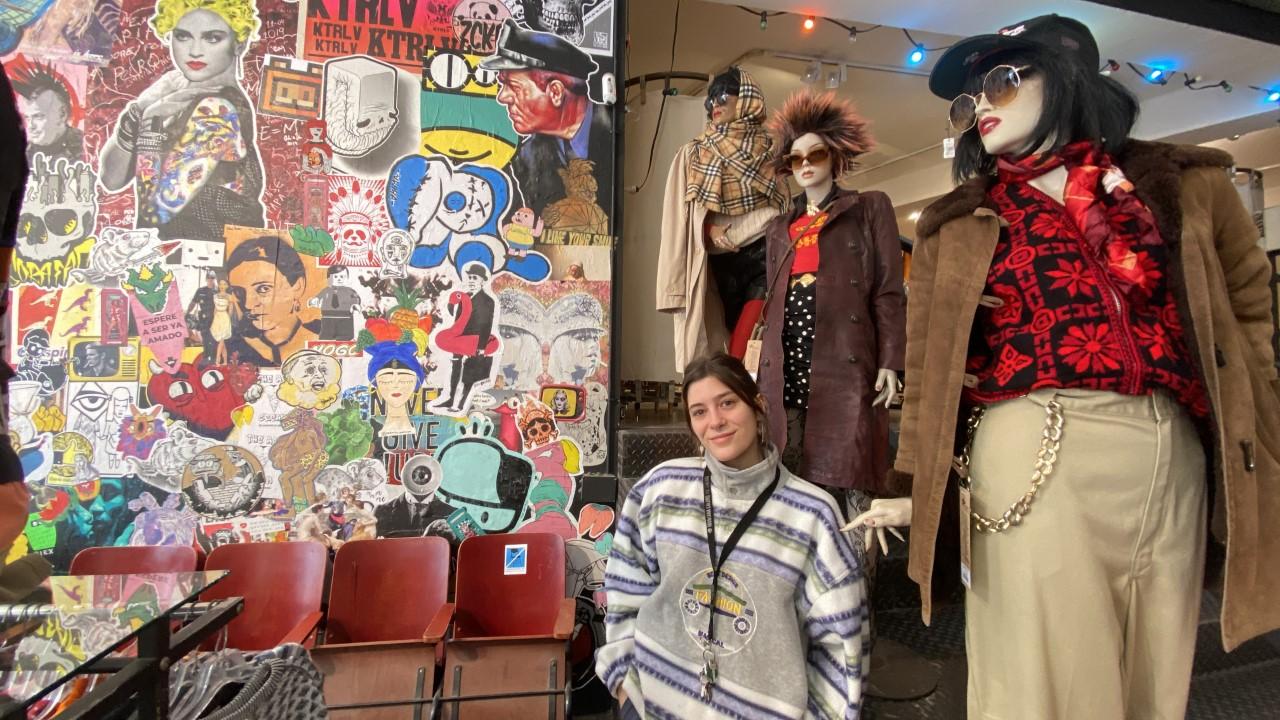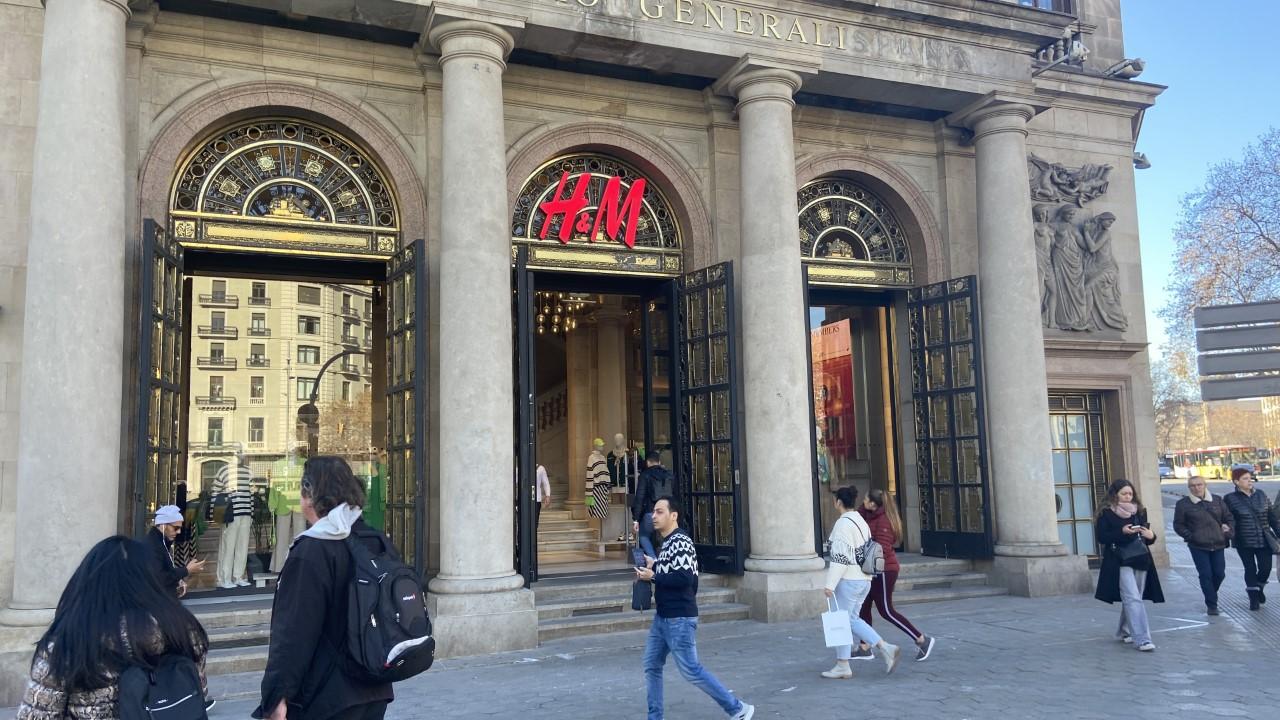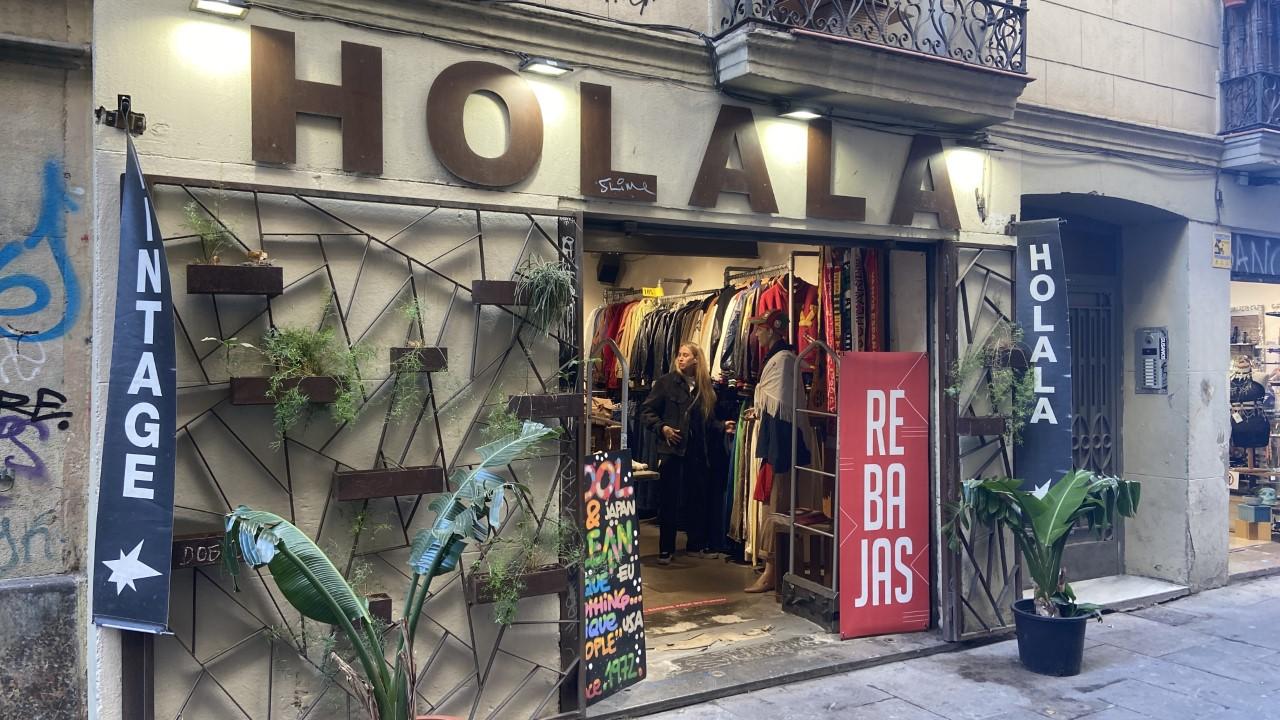Some of the world’s biggest clothing makers want to sell you their clothes — twice
Big, fast-fashion brands have traditionally ignored the secondhand market, but it’s grown too large not to get into the game.
The global market for second-hand clothes is around $72 billion, according to research from Future Market Insights. And it’s set to grow by double-digits over the next decade. No wonder the big players want in.
H&M and Spanish clothing giant Zara are leading a new trend, opening portals where customers can sell and buy their used, brand-specific shirts and skirts. The companies say they’re joining the circular economy but critics call it greenwashing.
Both companies declined interview requests with The World.
But their customers aren’t shy. On a recent afternoon, a shopper named Diana Ochoa strolled out of H&M’s flagship store in downtown Barcelona, Spain, with a bag of new T-shirts.
When asked if she’d seen H&M’s secondhand site and she said no, she’d never heard of it.
“I like the idea if the price is lower and the quality is good. It’s better to reuse clothes than to throw them away,” she said.
That’s pretty much what these clothing companies state on their websites — they claim that they want to make their own clothes last longer. It’s good for consumers, and good for the planet. But some shoppers are skeptical.
Just down the road from H&M, in a second-hand boutique called Holala, college student Laura Aguilar was leafing through racks of dresses.

“They’re faking it,” she said, accusing big clothing companies of greenwashing. “As long as the multinationals keep producing new clothes at the same pace, their second-hand sales are pointless.”
The global fashion industry is among the dirtiest on the planet. It produces a tenth of all humanity’s carbon emissions, according to the World Economic Forum. And it’s the second-largest consumer of water.
That contamination and waste is partly why clothing designer Alaia Roig quit her old job working for one of the biggest suppliers. She now works at Holala’s main shop, around the corner.
“I quit fast fashion three years ago because of the working conditions. From the very first clothing prototype, we were producing so much waste.”

That on top of all the clothes that eventually get thrown away by consumers, she said.
Roig wondered how makers of inexpensive clothing would turn a profit selling their items second hand, when they’re already so cheap new.
Economics professor Neus Soler, from Catalonia’s Open University, said it doesn’t matter; it’s not where the profits are.
“The big advantage of these initiatives is the big data the companies will collect.
The world’s largest companies, like Google and Amazon, she said, “are all fighting to create these huge databases about you and your shopping habits.”
It’s the sale of that data that goes ka-ching, she said, not the used skirts. Soler said if clothing manufacturers really want to go sustainable, there’s only one way to do it.
“They’d need to go back to the old ways of making clothes, “so that they last a lifetime,” she said.
